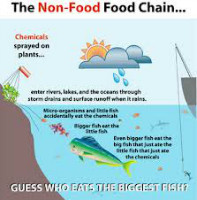I am a vegetarian and have been one since November 1972, just over 40 years. I come from an English middle income family and meat had always been a major part of our diet. For years I never questioned it and in fact enjoyed eating meat and saw no reason to change. Then at the age of 20, in my quest for an independent life, I left home and emigrated to Canada.
Life is surprising. I had never intended to become vegetarian. I grew up in a family and in a society of meat eaters and enjoyed partaking of it along with everyone else and yet suddenly, or so it seemed, I changed course.
For me it was a light bulb moment of realizing it just wasn’t in my best interest health wise or from a fundamentally spiritual perspective. I can honestly say that apart from learning to choose from a much wider field of fruits, vegetables, beans, nuts and grains, and breaking the news to my parents, it was never difficult leaving my prior eating habits.
I am one of four siblings. My brother who later moved to Canada, eventually became a vegetarian too, but my two sisters and their families, who remain in England, are dyed in the wool carnivores. I have never tried to change their minds beyond a general discussion of the why’s and where fore’s. You either get it or not and all the talking in the world will not change anything. I do believe that a vegetarian life is a healthier way to live and in the past 40 years I have noticed in my own family, that for the meat eaters their physical deterioration has been noticeably more severe.
When I first became vegetarian, it was definitely unusual. It didn’t have the acceptance that it does today. Then you would have had a difficult time eating in a restaurant, or dining with friends who had no idea what to serve you. Grocery stores didn’t have the wide range of foods to cater to vegetarians either and so you had to do most of your own cooking or eat nothing but salad and cheese melts. For me it was my travelling buddies that first got me thinking about becoming a vegetarian. It was the influence of Sant Kirpal Singh that set my mind on it. I have never regretted my choice. Fortunately my wife is also vegetarian, which makes it a lot easier to decide on what to eat.
For those of you who are dabbling I would encourage you to take the plunge. At the beginning it may seem daunting but pretty soon you'll wonder what all the fuss was about. All those questions about where do you get your protein just fade into insignificance. Personally I never worried about it, I just made sure to get a wide range of all the right food choices.












































